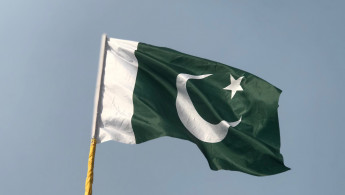Pakistan lifts import ban citing trading partners' concerns, impact on supply
Pakistan's top economic decision-making body on Thursday lifted a two-month old ban on the import of "non-essential" goods, citing concerns from trading partners and the impact the curbs have had on supply chains and the domestic retail industry.
The move comes despite falling foreign exchange reserves, a depreciating currency and record imports in June.
Pakistan in May imposed a ban on the import of all "non-essential luxury goods" citing a widening current account deficit, and also in a bid to stabilize an overheating and struggling economy hit by a rise in global commodity prices.
"In light of the fact that imports substantially reduced due to consistent efforts of the government, the ECC decided to lift ban on imported goods except for autos completely built-up units (CBU), mobile phones and home appliances," the Economic Coordination Committee (ECC) said in a statement.
The committee said the commerce ministry reviewed the ban owing to "serious concerns" raised by major trading partners and considering the fact that the curbs had impacted supply chains and the domestic retail industry.
Despite the ban, Pakistan has struggled to curb overall imports in the face of rising global commodity prices, particularly fuel, in the aftermath of the Russia-Ukraine war.
Pakistan posted record monthly highs for imports and petroleum-related purchases in June. Its current account deficit for the financial year that ended June 30 was $17.4 billion - more than quintuple the $2.8 billion posted in the last financial year, 2020-21.
Pakistan devalued another 7% today. Real depreciation since May is 20%. The 2018 currency crises in Argie & Turkey were 25-30% devaluations. Pakistan is in external distress. Expect large import compression but also capital outflows. Official creditors need to disburse a lot pic.twitter.com/cA9DEb59I3
— Sergi Lanau (@SergiLanauIIF) July 28, 2022
On Thursday, Pakistan's foreign exchange reserves fell $754 million to $8.57 billion, marking another sharp drop in the country's fast depleting funds, which cover less than two months' imports.
Three ratings agencies, Moody's Fitch, and S&P, have revised Pakistan's outlook to negative from stable - all citing external financing pressures.
"The negative outlook reflects growing risks to Pakistan's external liquidity position over the next 12 months amid an increasingly difficult economic landscape," S&P said in a statement on Thursday - the latest agency to revise its outlook.
The central bank, finance minister and market watchers say imports are expected to moderate in July.





 Follow the Middle East's top stories in English at The New Arab on Google News
Follow the Middle East's top stories in English at The New Arab on Google News
![The UAE is widely suspected of arming the RSF militia [Getty]](/sites/default/files/styles/image_330x185/public/2024-11/GettyImages-472529908.jpg?h=69f2b9d0&itok=Yauw3YTG)
![Netanyahu furiously denounced the ICC [Getty]](/sites/default/files/styles/image_330x185/public/2024-11/GettyImages-2169352575.jpg?h=199d8c1f&itok=-vRiruf5)
![Both Hamas and the Palestinian Authority welcomed the ICC arrest warrants [Getty]](/sites/default/files/styles/image_330x185/public/2024-11/GettyImages-2178351173.jpg?h=199d8c1f&itok=TV858iVg)